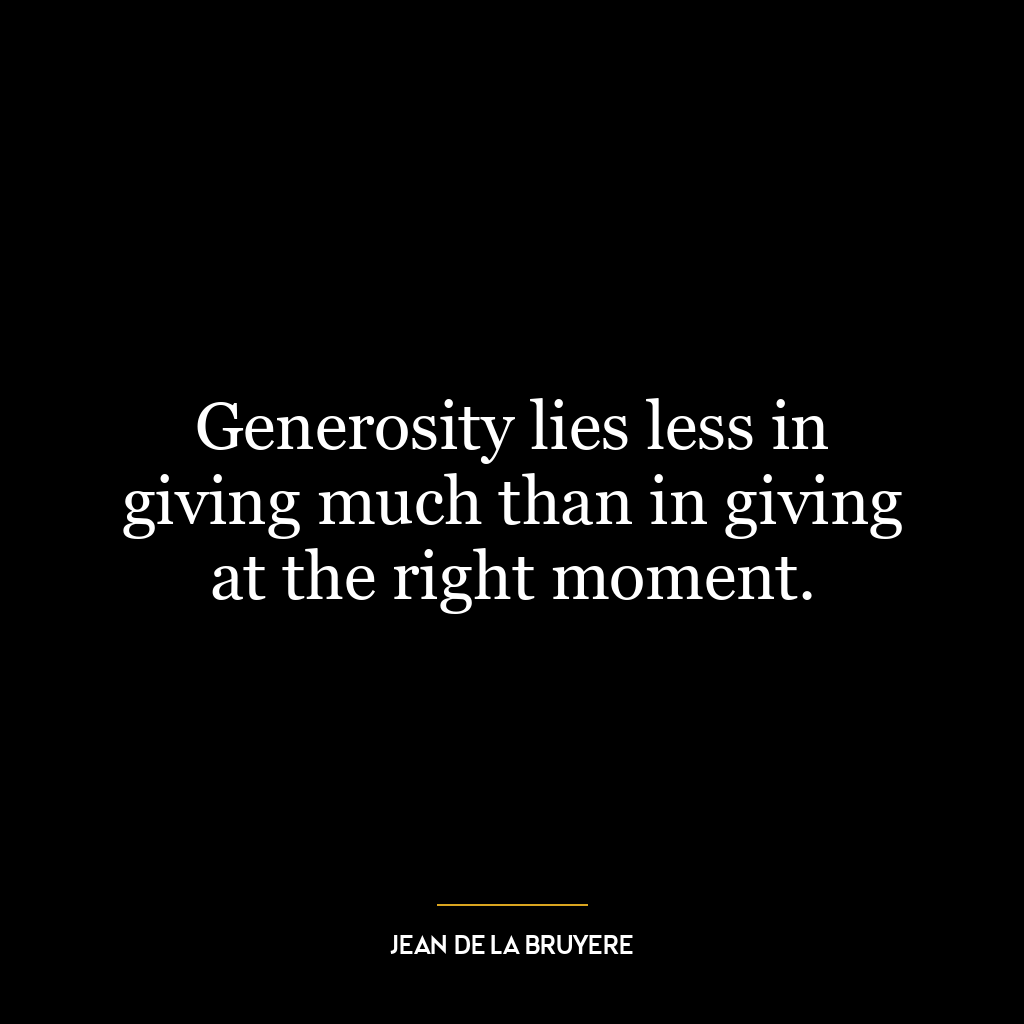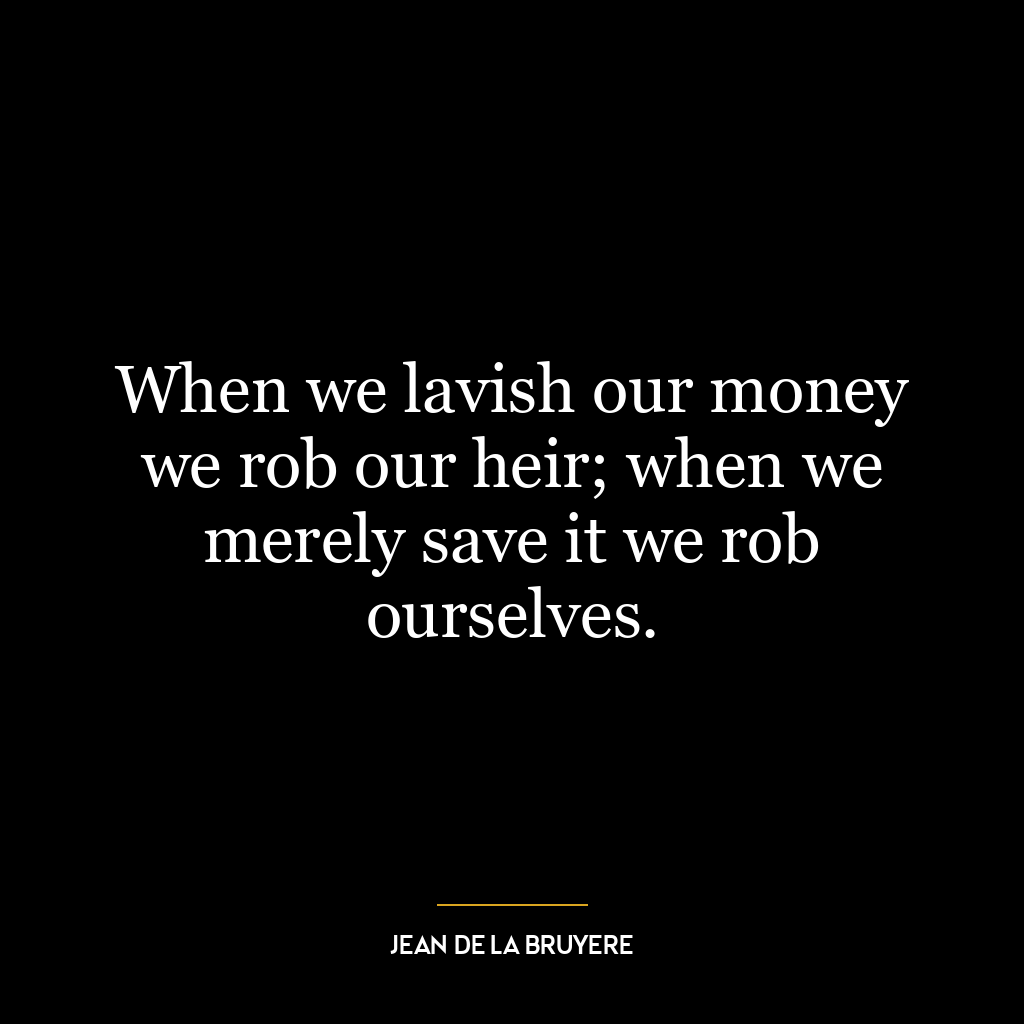That which is given with pride and ostentation is rather an ambition than a bounty.
The quote, “That which is given with pride and ostentation is rather an ambition than a bounty,” essentially implies that gifts given with a sense of showiness or arrogance are more reflective of the giver’s ambition or desire for recognition, rather than their generosity or kindness. When someone gives with pride and ostentation, it suggests they are more interested in how they are perceived by others and perhaps how they can benefit from the act of giving. In other words, the act of giving becomes more about the giver and their ego, rather than the receiver and their needs.
In the context of personal development, this quote can serve as a reminder to check our motivations when giving or helping others. Are we doing it out of genuine kindness and a desire to help, or are we doing it for recognition, praise, or to boost our own image? If it’s the latter, the quote suggests that our actions may be driven more by self-centered ambition than by generous intent.
In today’s world, this idea is particularly relevant in the context of social media where acts of charity or kindness can sometimes be performed more for the sake of public display and self-promotion, rather than genuine altruism. For example, a celebrity might donate to a charity and then publicize their act on social media. While the donation itself is beneficial, if the primary motivation is to improve their public image rather than to help the charity, then according to Seneca the Younger, this act could be seen as ambition rather than bounty.
This quote encourages us to give quietly and humbly, without expecting anything in return, including recognition or praise. It prompts us to question our motivations and to strive for genuine altruism, where the act of giving is its own reward.















